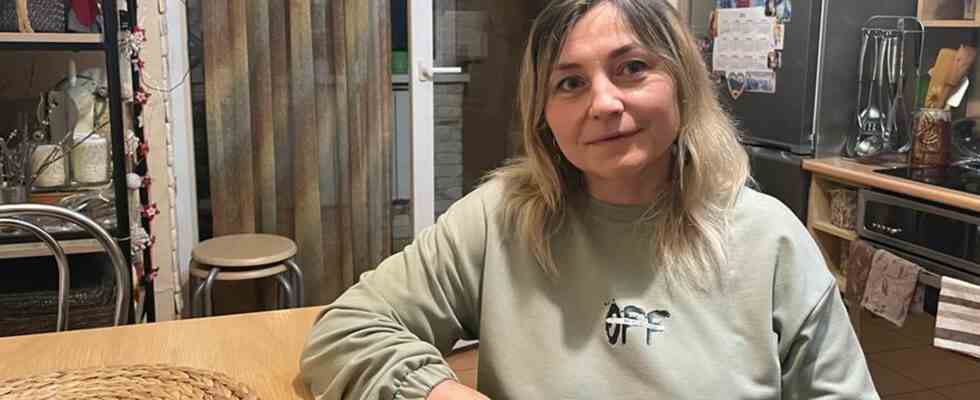report
Status: 01/23/2023 08:45 a.m
Around two million people with disabilities lived in Ukraine before the Russian attack. In the face of rocket and drone attacks, their everyday life has become even more difficult. Tetiana Kovalchuk from Kyiv is one of them.
The path into Tetiana Kovalchuk’s ground floor apartment leads up a green-painted, serpentine ramp. Inside, the doorsteps have been smoothed out. The bathroom is visibly wider, Kovalchuk points to the place where the wall was broken.
It is not without reason that she lives barrier-free. The 48-year-old woman is in a wheelchair. As a teenager, she fell from a height of several meters. Since then she has been paralyzed below the waist. What is also striking in her apartment in the south-west of Kiev are numerous water bottles lined up next to each other. This is no coincidence either, explains Kovalchuk.
“I’ve developed new habits since the invasion,” she says. “I never used to stockpile food or medicine. Now I have supplies for several weeks, for example canned goods, in case the power goes out for a long time.”
“Not in the state’s emergency protocol”
Kovalchuk works for a non-governmental organization that fights for the rights of disabled people. All she needs is her laptop. As part of her work, she also documents problems that people with disabilities are additionally confronted with in everyday wartime.
As the single mother of two explains, these could already be seen at the beginning of the Russian war of aggression. During evacuations, people with disabilities are often left behind.
“People like that just weren’t on the state’s emergency protocol. There was no proper transportation for people in wheelchairs initially, when there was a lot of panic. It took a month for this to slowly change,” she says.
Not everyone can leave their homes
In most cases, however, non-state actors organized the evacuation of people with disabilities, says Kovalchuk. It is estimated that there were more than two million such individuals in Ukraine prior to the invasion. Not everyone was able to leave their homes.
And there, too, they need help in the event of immediate danger, which they don’t always receive: “An acquaintance of mine who is in a wheelchair was once taken to a shelter. She stayed there for four days – without going to the toilet once .” The woman was uncomfortable asking others to carry her up and down all the time.
A man in a wheelchair who lived on the 13th floor, Kovalchuk continues, the police carried downstairs. After that he was evacuated from Kyiv.
legacy of the Soviet past
Kovalchuk himself does the following when the air raid alarm sounds in the capital: “I’ll stay in the apartment and work. Where should I go as a wheelchair user? There’s no real shelter in the entire settlement anyway.” The closest reasonably safe place is an underground parking garage. “Me and a parking garage – where there is no toilet and it’s cold? That’s not possible.”
Nevertheless, Kovalchuk differentiates when it comes to inclusion. They generally experience a high level of social acceptance of people in wheelchairs, for example. In her view, the sluggish institutional inclusion – like the lack of accessibility in public space – is primarily a legacy of the Soviet past.
“Nobody saw us, heard us, talked about us. Disability was not allowed in the Soviet Union,” says Kovalchuk. “People with disabilities were therefore housed in special facilities.” Only after Ukraine became independent in 1991 could people with restrictions stand up for their rights.
“Obstacles make me more determined”
Looking at this, Kovalchuk sees a positive dynamic, she says. Meanwhile, she doesn’t want to let the war and the constant risk of air raids get her down.
“I enjoy life. I completed my studies as a disabled person. I had children and worked as a disabled person.” When you have a goal in mind and encounter obstacles, there is always a way to overcome them. “Obstacles make me even more determined.”
Everyday war of people with disabilities in Ukraine – A report
Peter Sawicki, WDR, currently Kyiv, January 23, 2023 7:19 a.m

